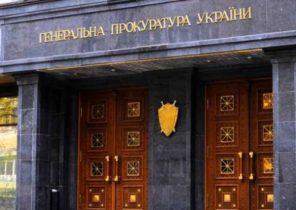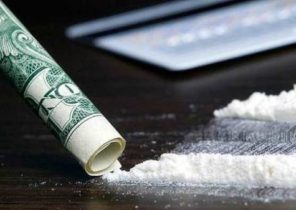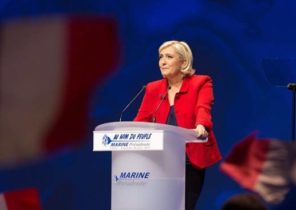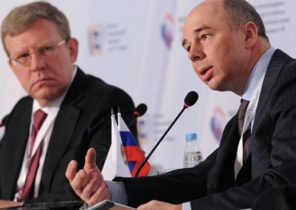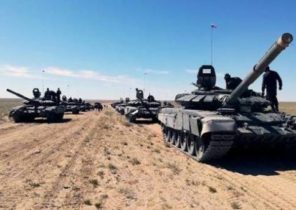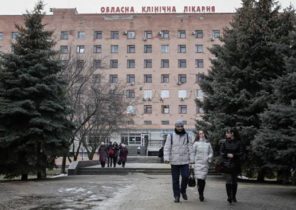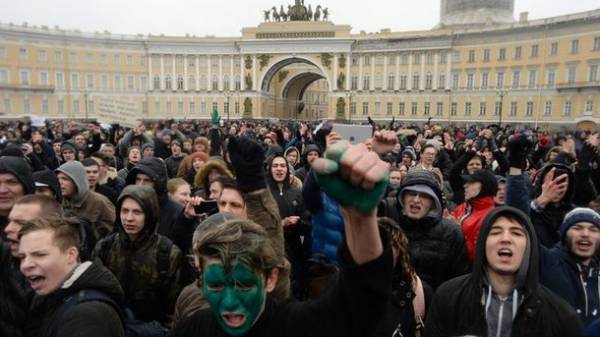
The first high-profile protests in Russia after the meetings 2011-2013 ended military disperse and mass arrests. After a week or 2 of April in the country a new wave of indignation. The shares were not so numerous, but no arrests has not done. The experts noted that despite the fact that now these events are nothing, the Russian authorities do not threaten, rallies can be considered a new “Wake-up call” for the Kremlin.
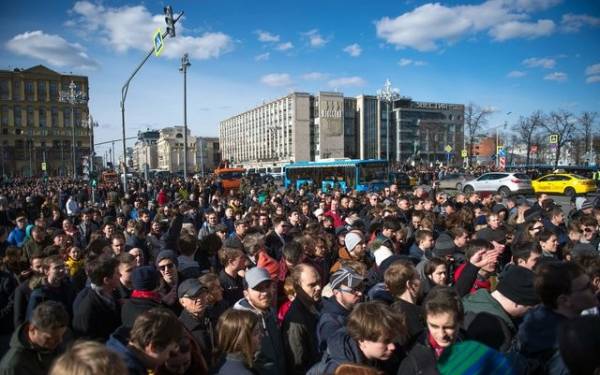
Rallies were held in many regions of Russia. Photo: AFP
Anti-corruption rally on March 26 held at the call of the Russian opposition leader Alexei Navalny. As told “Today,” political analyst Volodymyr Fesenko, for the first time in modern Russia under the rule of President Vladimir Putin on the conversion of one man responded to a few tens of thousands of people.
This was preceded by the release of the film, prepared by Fund of struggle against corruption. The video exposed the corruption of Russian Prime Minister Dmitry Medvedev and has generated a huge response – at the time of preparation of article on Youtube, the video had been viewed over 14.5 million times.
The film Fund of fight against corruption about the Prime Minister of Russia Dmitry Medvedev. Video: Youtube/Alexei Navalny
“Navalny made the second step. He decided to use this film and the lack of reaction to him, these revelations and accusations as a pretext for political action. And this action is, of course, had to work for his interests. He decided to join the fight against corruption with his political interests as a future potential presidential candidate,” – says Volodymyr Fesenko.
According to the expert of the Ukrainian Institute of policy analysis and management Mr Will, information about Medvedev was successfully used as a pretext to demonstrate that the Russian government is mired in corruption and not fight with it.
“Without property Medvedev corruption in Russia is full, and so do the supporters of the Russian opposition and those who support them actively, and those who are just sitting in the kitchen and resents the corruption,” says Will.
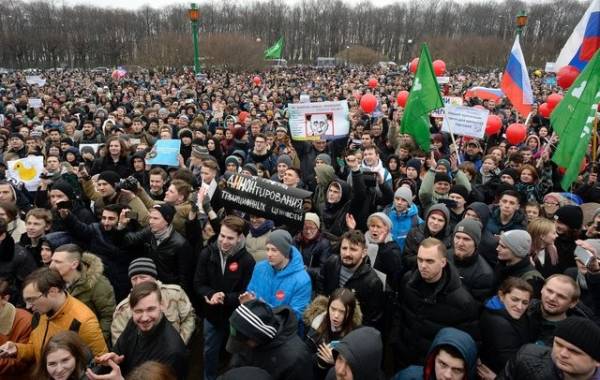
Participation in rallies took tens of thousands of people. Photo: AFP
Experts agree that the number of participants of these protests by Russian standards, meager. According to the beginning of 2017, the population of Russia exceeds 146,6 million people. According to estimates of resource “Medusa” on 26 March in the streets in different regions went from 32 to 92 359 861 people. For calculating these figures used minimum and maximum estimates. Official data from the figures presented above are significantly different in the smaller side.
However, protest rallies showed the number of active supporters of the opposition, said Mr willing. The situation in Russian society, especially not changed – the current government has a very high level of public support, he says.
So, according to the rating of the analytical center “Levada-Center”, in February 2017, 84% of Russians said they approve of Putin on a post of the President of the Russian Federation. But according the all-Russia centre of studying of public opinion (VTSIOM), as of 19 March 2017 the level of approval of Putin was 84.2%.
“In this case, we can say that there is dissatisfaction with those processes that occur in the Russian Federation, there is dissatisfaction with social policy, economic, corruption. But if we are talking about which politicians support the Russians, they are definitely, even in his dissatisfaction, is likely to support Putin than opposition leaders like Navalny,” explains Will.
The fact that the percentage dissatisfied with the corruption in Russia is very high, no doubt, emphasizes Will. However, the protests this will not have any significant support, which will allow them to become so significant for the Russian government that she is afraid of them, he said.
Thus, according to Volodymyr Fesenko, an important part of which took place on 26 March stock has been the participation of large number of young people, even high school students.
“It is also alarming to Putin. While there is no real direct threat, but this “alarm bell”, which again begins to appear political tension and active protesters,” – said the analyst.
The expert stressed that now is the actions of an active minority, which is small and poorly organized, but this is only the beginning. But in order that such events gained momentum, not only must the growth of protest activity, but the weakening of the power. In Russia, the power is strong enough, and there is a silent majority that supports Putin, said Fesenko. In addition, insights about the situation yet to do before – as shown by the experience of previous political protests in Russia, a spike may be fading, he added.
At the same time, Fesenko believes that for the Bulk, which now becomes the main opposition leader of Russia, these actions are only the beginning.
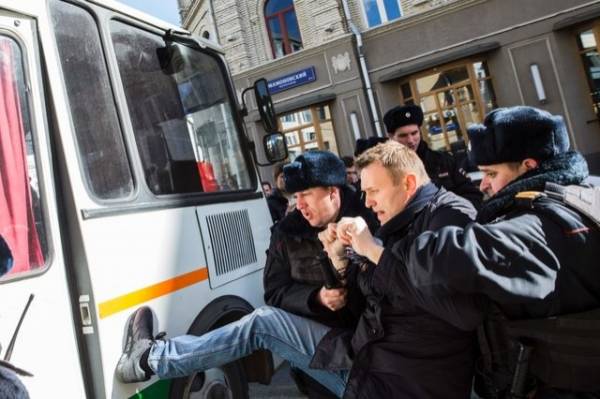
Police detained Navalny during the protest. Photo: AFP
However, an expert on international Affairs Vladimir Will believes that neither the shares nor the number of the detained participants, the arrest Navalny for 15 days would annoy the Russians so much that they took to the streets to defend the opposition or captured by the police parties.
In most of the detainees were administrative reports for violation of the established order of holding rallies. As said Fesenko, the Russian government, the actions of activists are suppressed in a moderate form.
“While Putin wants to negotiate with the West, I think he’s some harsh repression will not do. Moreover, for him, Navalny and the protests do not pose a direct threat, rather, it is a potential threat,” he said.
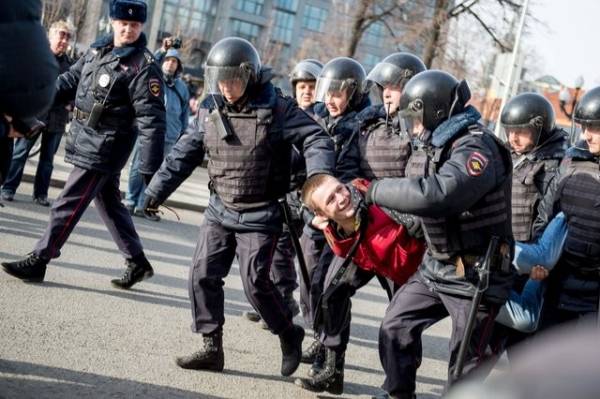
Only in Moscow, police detained more than thousand participants of protest action. Photo: AFP
Recall that in most cities of Russia, the meeting was not coordinated, and their members dispersed and detained by the police. According to “jellyfish” across the country, was detained 1666 — 1805. In Moscow – more than a thousand people, including minors and the organizer of Russian opposition leader Alexei Navalny.
Most of the detainees were administrative reports drawn up under article 20.2 of the administrative code of Russia (” Infringement of the established order of organizing or holding meetings, rallies, demonstrations, marches or picketing”). Navalny was sentenced to 15 days of arrest for disobedience of police during detention.
